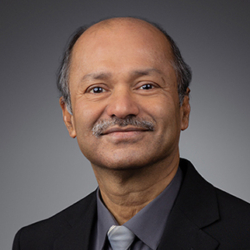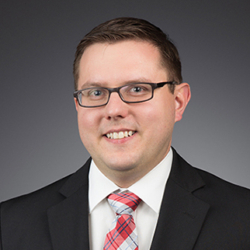Adversarial Machine Learning for Enhanced Spread Spectrum Communications
Recently, deep learning has demonstrated much success within the fields of image and natural language processing, facial recognition, and computer vision. The success is attributed to large, accessible databases and deep learning's ability to learn highly accurate models. Thus, deep learning is being investigated as a viable end-to-end approach to digital communications design. This work investigates the use of adversarial deep learning to ensure that a radio can communicate covertly, via Direct Sequence Spread Spectrum (DSSS), with another while a third (the adversary) is actively attempting to detect, intercept and exploit their communications. The adversary's ability to detect and exploit the DSSS signals is hindered by: (i) generating a set of spreading codes that are balanced and result in low side lobes as well as (ii) actively adapting the encoding scheme. Lastly, DSSS communications performance is assessed using energy constrained devices to accurately portray IoT and IoBT device limitations.
- Year: 2021
- Category: Secure & Resilient Systems
- Category: Radar Systems
- Tag: Generative Adversarial Networks, Spread Spectrum, Deep Learning, Computer Vision, Field Images, Face Recognition, Sidelobe, Field Of Image Processing, Use Of Deep Learning, Low Sidelobe, Ability Of Deep Learning, Loss Function, Neural Network, Training Set, Communication Systems, Signal Detection, Global Positioning System, Pseudo-random, Detection Probability, Multiple-input Multiple-output, Peak Sidelobe, Block Error Rate, Energy Constraints
- Author: Mohamed K. M. Fadul, Donald R. Reising, K. T. Arasu, Michael R. Clark
- Released: MILCOM 2021 - 2021 IEEE Military Communications Conference (MILCOM)
Featured Riverside Research Author(s)
K. T. Arasu
K. T. Arasu (Member, IEEE) is a senior research scientist at Riverside Research in the Engineering and Support Solutions Group. He received the B.S. and M.S. degrees in mathematics from Panjab University, India, and the Ph.D. degree from The Ohio State University. Prior to joining Riverside Research, he was a professor with the Department of Mathematics and Statistics, Wright State University, for 35 years. He investigates novel techniques on error correcting codes, cryptography, data security and privacy, as well as topics at the intersection of machine learning, security, and information theory. He has published over 110 research papers. During his time as a professor at Wright State University, he was presented the Teaching Excellence Award from the College of Science and Mathematics, the Presidential Research Excellence Award, and the Trustees' Award for Faculty Excellence. He serves on the editorial board of several technical international journal publications.
LinkedIN
Michael R. Clark
Dr. Michael R. Clark is a director at Riverside Research and leads the Secure and Resilient Systems (SRS) research group. He has conducted research in a variety of areas including cryptography, wireless systems, hypervisors, and machine learning. He holds a PhD from the Air Force Institute of Technology, an MS from the University of Utah, and a BS from Brigham Young University, all in computer science.
LinkedIN
The above listed authors are current or former employees of Riverside Research. Authors affiliated with other institutions are listed on the full paper. It is the responsibility of the author to list material disclosures in each paper, where applicable – they are not listed here. This academic papers directory is published in accordance with federal guidance to make public and available academic research funded by the federal government.
